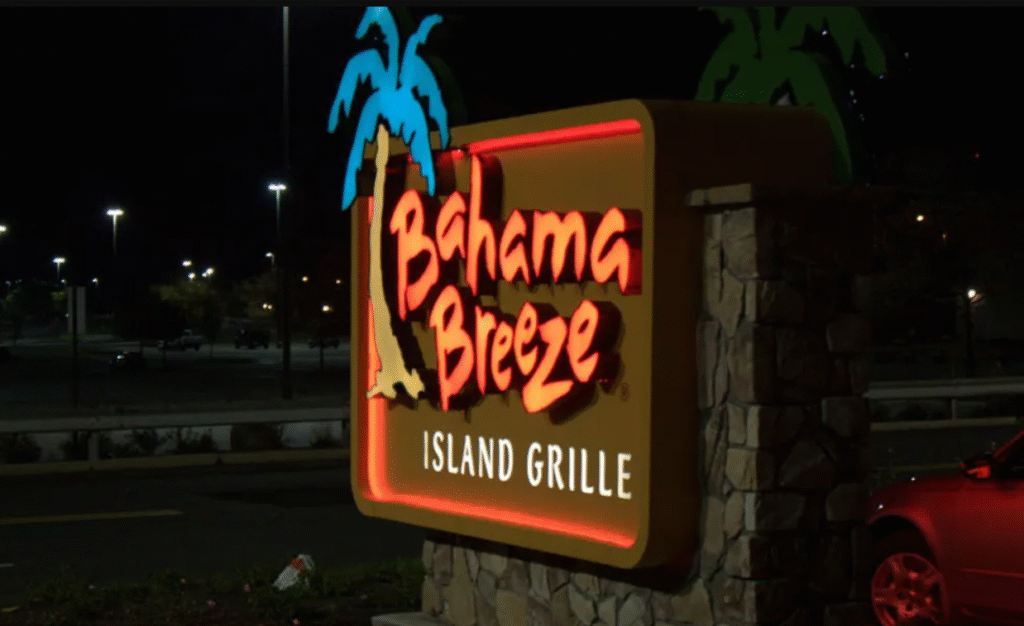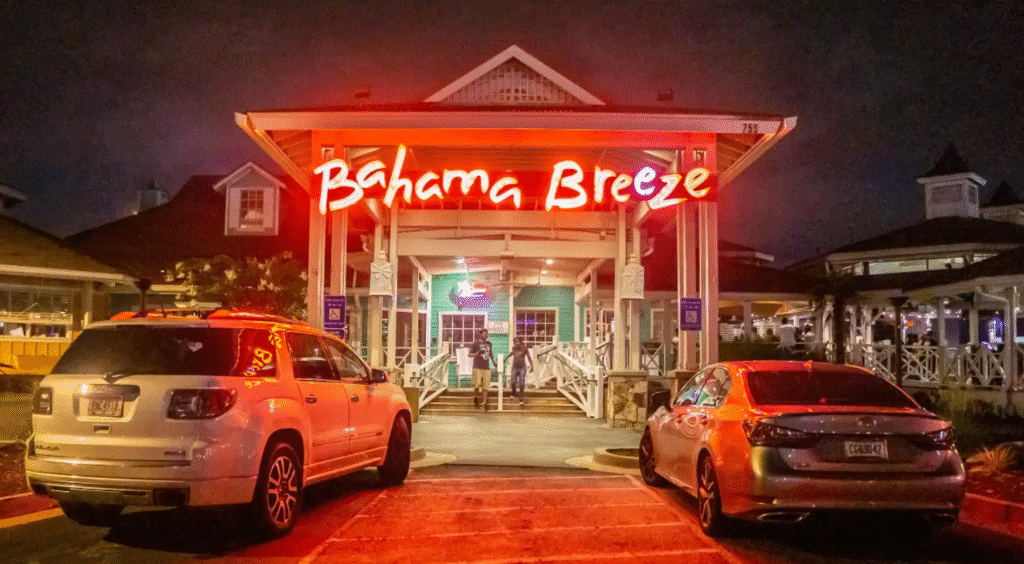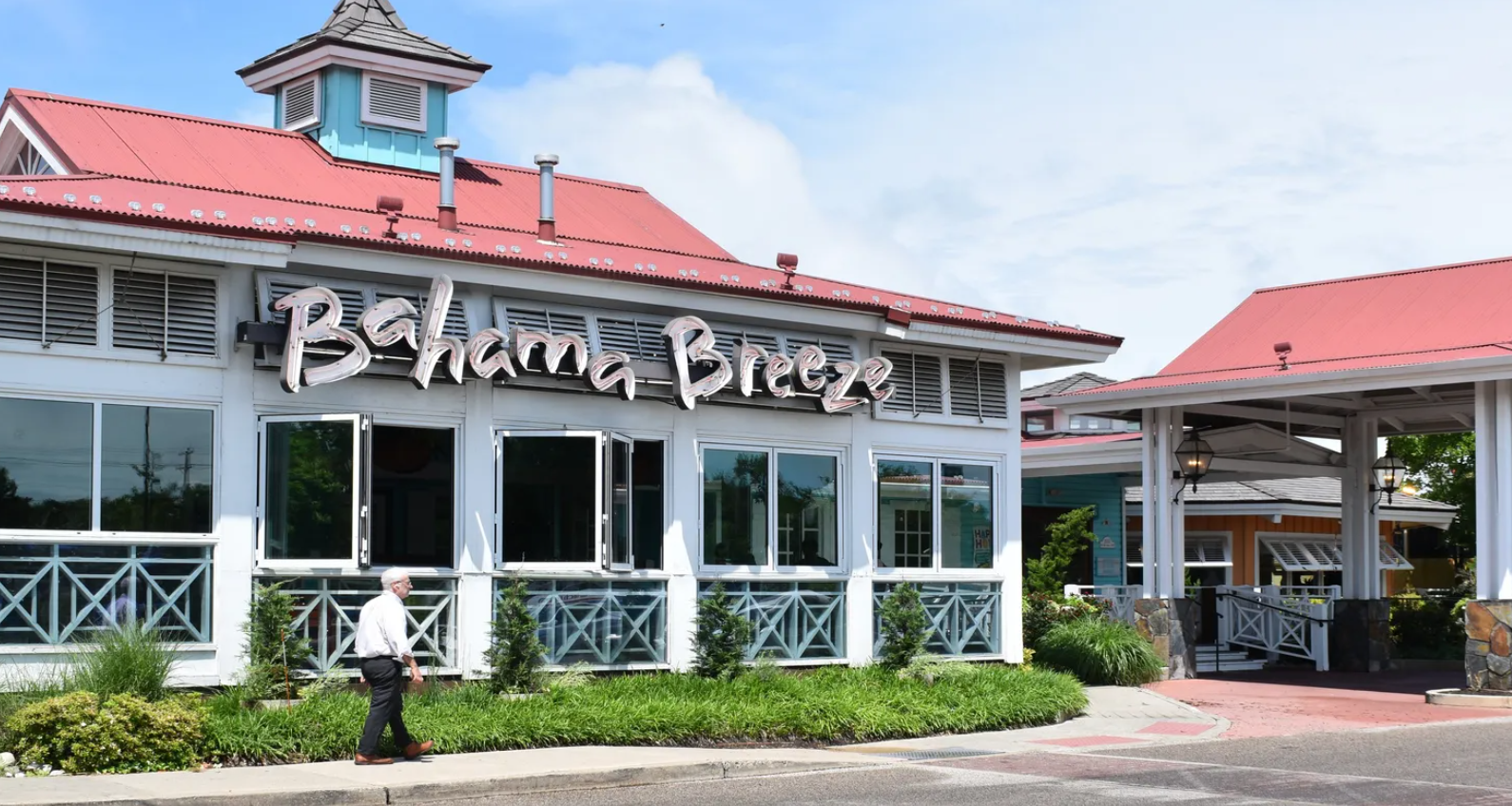Darden Restaurants is pulling back from its Caribbean-themed chain, Bahama Breeze, after closing 15 locations. With only 14 outlets remaining, the company is considering a sale or conversion into Olive Garden or LongHorn units. Explore what this means for the future of the island-inspired brand and the broader U.S. casual dining industry.

A Larger Trend in the American Restaurant Industry
The news of Bahama Breeze’s uncertain future isn’t an isolated event. It reflects a much broader transformation happening in the American restaurant industry—one driven by economic pressure, changing customer preferences, and strategic pivots by large hospitality groups.
Rising Operational Costs and Shifting Consumer Behavior
Over the past few years, restaurant operators across the U.S. have faced growing challenges such as:
- Rising labor costs
- High food inflation
- Supply chain volatility
- Declining dine-in demand post-pandemic
Consumers are increasingly opting for takeout, delivery, or budget-friendly alternatives due to inflation and cost-of-living pressure. This has forced many traditional casual dining chains to reassess their portfolios.
Mass Closures Across the Industry
Bahama Breeze is just one of several well-known brands under stress:
- Red Lobster—a former Darden brand—filed for bankruptcy earlier this year and shuttered over 90 locations.
- Hooters—recently filed for bankruptcy to restructure nearly $376 million in debt.
- Denny’s, Red Robin, and Applebee’s have all announced the closure of dozens of underperforming locations.
These developments point to a deep shift. The casual dining model that once dominated suburban America is being replaced by leaner, faster, and more tech-savvy business models. Chains now favor efficiency, delivery-friendly menus, and franchise-heavy expansions.
Strategic Realignment Over Sentiment
Restaurant giants like Darden are no longer attached to nostalgia. They’re acting based on data—letting go of legacy brands that no longer drive strong margins. That’s why Darden, which once sold Red Lobster in 2014 for $2.1 billion, is now applying similar logic to Bahama Breeze.
Future Uncertain for the Island-Themed Chain Bahama Breeze
Bahama Breeze, a once-promising concept built around Caribbean flavors, tropical cocktails, and a beachy vibe, is now at a crossroads. What once drew crowds seeking jerk chicken pasta and mojito flights is now struggling to stay relevant.

From Tropical Delight to Strategic Dilemma
Launched in the 1990s by Darden Restaurants, Bahama Breeze offered a laid-back, vacation-style experience that differentiated it from traditional American grills. Signature items like Jamaican jerk wings, coconut shrimp, and reggae music created an escapist dining experience.
But in 2025, Darden officially confirmed that Bahama Breeze is no longer considered a strategic priority.
According to CEO Rick Cardenas:
“We have made the difficult decision that these remaining locations are not a strategic priority for us… we believe this brand could benefit from a new owner.”
Location Closures and Market Shrinkage
- In May 2025, Darden shut down 15 underperforming Bahama Breeze locations across key markets like Florida, New York, New Jersey, Massachusetts, and Nevada.
- This left only 14 active units—primarily in high-traffic or tourist-heavy zones.
- Darden stated these remaining units are performing well, but they no longer justify further investment.
These decisions mirror similar actions taken in the past. For example, Darden closed two Seasons 52 units and one Eddie V’s location in Boston during the same wave of closures.
What’s Next? Sale or Conversion
Currently, Darden is exploring “strategic alternatives” for Bahama Breeze:
- If a buyer is found, the chain may be sold outright.
- If not, the remaining units could be converted into Olive Garden or LongHorn Steakhouse restaurants, which have shown higher profitability and growth.
Bahama Breeze might disappear altogether—not because of poor food or service, but because it no longer fits the high-margin growth strategy Darden is focused on.

Darden Confirms Exit After Widespread Closures
The decision to potentially exit the Bahama Breeze brand is part of a calculated portfolio optimization move by Darden Restaurants. This is the same company that owns some of the strongest performers in the casual dining sector, including:
- Olive Garden
- LongHorn Steakhouse
- Ruth’s Chris Steak House (acquired in 2023)
- Cheddar’s Scratch Kitchen
- The Capital Grille
Your bestie deserves the best gift. 💖 pic.twitter.com/LyyKa1vURU
— Bahama Breeze (@BahamaBreeze) December 5, 2024
Darden’s Recent Performance Highlights
During the Q2 2025 earnings call, Rick Cardenas elaborated on the brand performance:
- Olive Garden and LongHorn Steakhouse have posted strong same-store sales growth of 6.9% and 6.7%, respectively.
- The acquisition of Ruth’s Chris added revenue from 74 high-performing locations.
- These brands are drawing more resources and investment compared to smaller, niche concepts like Bahama Breeze.
Simply put, Darden wants to double down on winners and shed underperformers, even if they still have a loyal fan base.
CEO’s Message on Bahama Breeze
“Bahama Breeze has a fair amount of growth potential but could benefit with another owner. We don’t intend to invest more in this brand as it doesn’t meet our current strategic goals.”
Cardenas’ message was clear: emotional ties or brand uniqueness won’t override cold, strategic financial decision-making.
Impact on Customers and Employees
While loyal customers are mourning the potential loss, employees face even more uncertainty. Darden has stated that impacted workers may be reassigned to other brands within the company, but job losses are still likely.
For regulars who enjoyed the escapism of Bahama Breeze’s tropical ambiance, the end of this chain represents more than just a lost restaurant—it’s the disappearance of a dining experience.
Is This the End of Island-Inspired Dining?
Bahama Breeze was one of the few mainstream chains dedicated to Caribbean-American cuisine. Its shutdown would mark a rare gap in the casual dining scene:
- No major replacement exists at scale.
- Independent Caribbean restaurants may benefit from renewed attention.
- Alternatively, it may signal that niche dining brands must go hyper-local or high-end to survive.
A Taste of the Past, Fading Fast
Bahama Breeze’s fate is still technically undecided, but the writing is on the wall. Darden has moved on. The brand may soon be sold, shuttered, or absorbed into the company’s more lucrative labels.


For many, this is a case of corporate strategy overriding cultural flavor.
But for the U.S. restaurant industry, it’s also a sign of changing tides. Chains that can’t scale efficiently or evolve with consumer behavior may soon find themselves swept away—even if they once felt like a mini-vacation on every plate.
FAQs
Q1: Is Bahama Breeze shutting down completely?
A: Not yet. Darden is exploring a sale. If a buyer isn’t found, the remaining restaurants may be converted into other Darden brands.
Q2: How many Bahama Breeze locations are still open?
A: As of June 2025, only 14 Bahama Breeze restaurants remain operational.
Q3: Why is Darden pulling back from Bahama Breeze?
A: Darden considers it no longer a strategic priority and wants to focus on higher-performing brands like Olive Garden and LongHorn Steakhouse.
Q4: What cities were affected by the closures?
A: Cities in Florida, New Jersey, Massachusetts, Illinois, Michigan, Nevada, and New York saw closures.
Q5: Could Bahama Breeze be revived by a new owner?
A: Possibly. CEO Rick Cardenas believes the brand has potential under different ownership.
Also Read :
184 Million Passwords Leaked: Google, Microsoft, Facebook Among Biggest Victims

